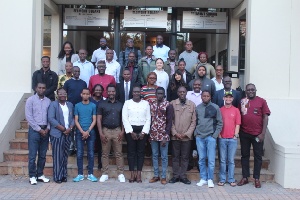Health News of Wednesday, 14 May 2025
Source: www.ghanawebbers.com
African scientists push back against misrepresentation of Solar Geoengineering Research
A group of prominent African climate scientists has responded to criticism. They are addressing claims that their research on solar radiation management (SRM) is “neo-colonial experimentation.” This criticism came from the Hands Off Mother Earth (HOME) Alliance.
In a joint statement titled “Informed Voices, Informed Futures,” they defended their work. They issued this statement during the Degrees Global Forum on SRM in Cape Town. The scientists emphasized that their research is rigorous, transparent, and ethically grounded.
They argued that mischaracterizing African-led research undermines the continent’s scientific community. “We are internationally recognized experts who publish in top journals,” they stated. They added that suggesting they are test subjects is incorrect and insulting.
The Degrees Global Forum is the largest international conference on SRM to date. It includes participants from over 50 countries, with more than 30 African scientists present. The forum debates climate change risks and explores SRM's scientific, ethical, and policy implications.
SRM involves reflecting sunlight back into space to cool the planet. However, African researchers clarified their goal is understanding SRM, not promoting its use. “We are studying it to understand what it could mean for Africa,” they stressed.
They warned against silencing SRM research under anti-colonialism claims. Such actions could exclude African voices from important global discussions. “The real risk is not research — it’s ignorance,” they stated.
Calls to halt African involvement deny opportunities for leadership in climate interventions. The scientists highlighted Africa's vulnerability to climate change as crucial for research participation.
“Global interventions could drastically affect rainfall, temperature, agriculture, and public health in Africa,” they noted. They urged inclusion in conversations shaping the continent's future.
The group called for support from civil society, funders, and governments for inclusive dialogue. Their statement was signed by over 30 researchers and institutions across several African countries. These include South Africa, Ghana, Uganda, Nigeria, Cameroon, Benin, Côte d’Ivoire, Kenya, Botswana, and Mali under the Africa Climate Intervention Research Hub banner.











